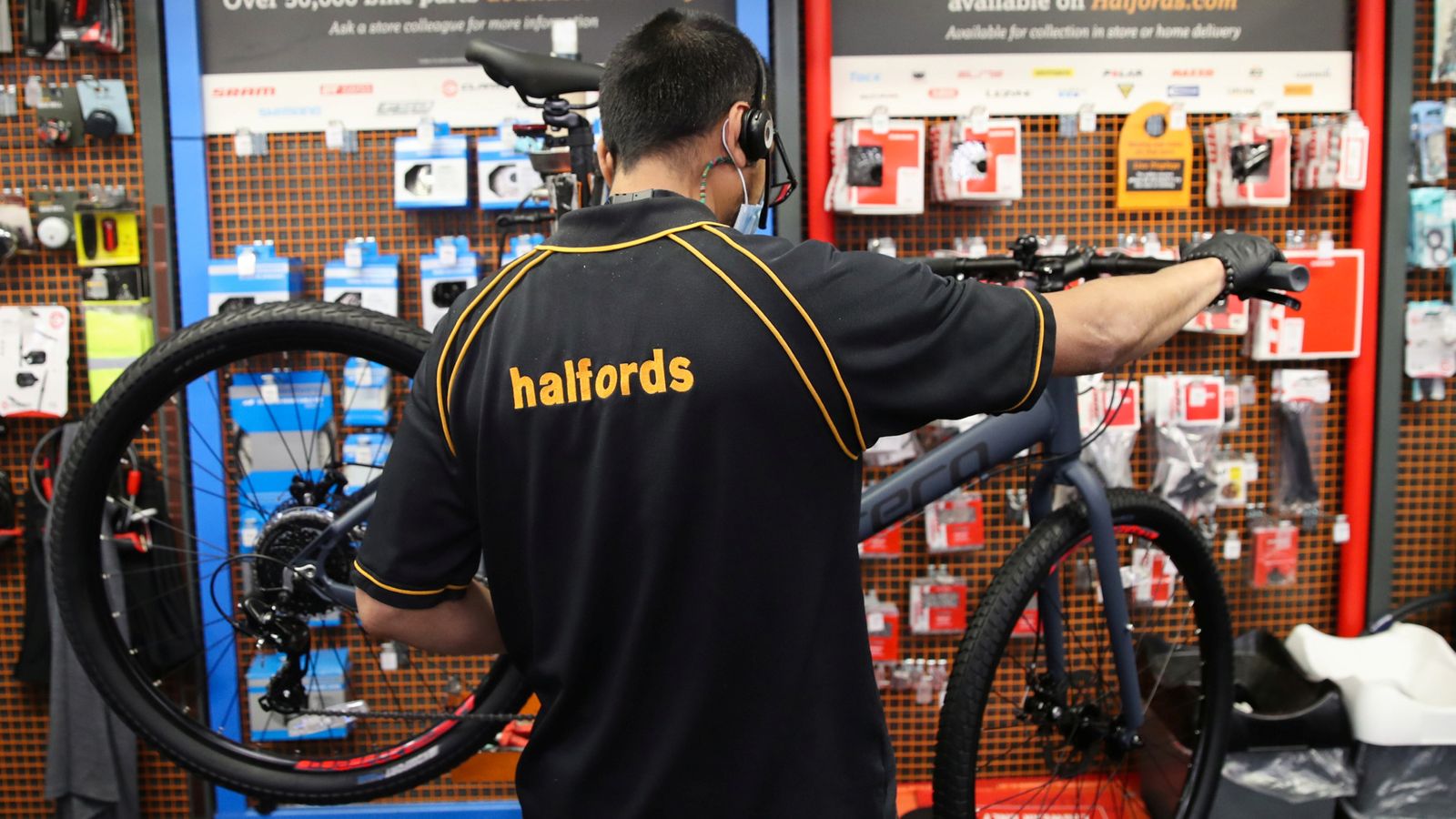Halfords says it is facing an “acute” shortage of cycling products amid a coronavirus pandemic-led sales boom that helped drive annual profits up 184%.
The retailer, which also specialises in motoring goods and car repair, used the publication of its figures for the 12 months to 2 April to warn that continued global supply shortages – a consequence of COVID-19 disruption – added “uncertainty to its outlook”.
Nevertheless, the UK’s largest cycling retailer forecast further profit progress in its current financial year, largely due to pent-up demand for bikes but also travel restrictions boosting other staycation-led products, such as camping and touring goods.
Live COVID updates from the UK and around the world
Chief executive Graham Stapleton said: “In the longer-term, we remain confident in the future prospects for the UK’s motoring and cycling markets and our ability to compete strongly in both.”
Revenue for its last financial year rose by 13% to £1.3bn with underlying earnings climbing 72% to £96.3m – largely as a result of a 54% leap in like-for-like cycling sales.
It reported that e-mobility sales – such and electric bikes, e-scooters and associated accessories – were up 94% on the previous year.
Bottom line profit before tax rose to £64.5m – up from £19.4m in the previous year.
The company reinstated its dividend – saying it would also be progressive in future – but shares were almost 5% down at one stage in response.
Susannah Streeter, senior investment and markets analyst at Hargreaves Lansdown, said the fall likely reflected concern over the outlook and disappointment that the dividend was not initially higher.
“Supply chain issues have stopped growth from shifting into an even higher gear, with the company having difficulties getting hold of the right stock,” she said.
“Halfords reckons those issues aren’t going to disappear over the hill any time soon, and the timing of a return to normal trading patterns remains highly uncertain.
“With many people swapping a foreign beach for staycations in the countryside, touring models are in high demand, and risk speeding out of the shops much faster than they can be replaced.”
But she added: “The new trend of swapping four wheels for two isn’t likely to be reversed as more people return to work, with more people adopting cycling for the commute.”






















